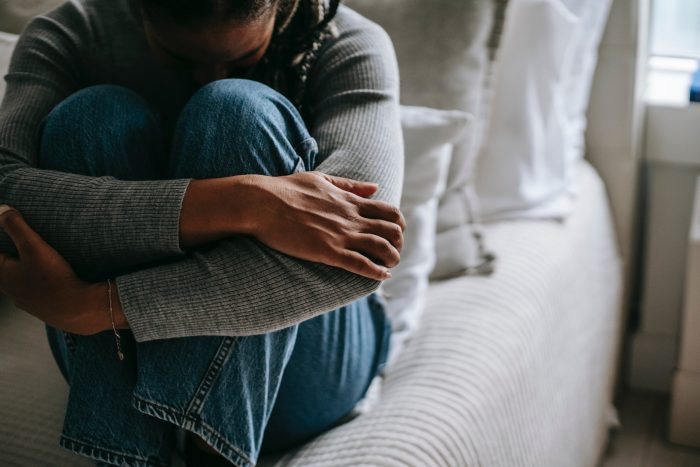Coming to terms with our own failure isn’t easy.
Failing once is one thing. But failing a few times at the same thing brings with it a whole heap of questions: am I doing the right thing? Am I in the right place? Is it a sign from the universe to stop and change course?
I got my results yesterday for an important board registration exam that I did last week—and I failed. Again.
The news hit me like a ton of bricks. This physiotherapy registration certificate was my ticket to freedom in many ways. On the other side of it is more financial freedom, more job opportunities, more security for me (and for my future unborn children), more recognition, more personal validation. I had so much weight hanging onto this one thing that was going to course-correct my life and give all this hardship some meaning.
I envisioned that this uphill climb was, finally, coming to an end.
I spent a decade fully dedicated to this profession and the past five years all in pursuit of getting this single piece of paper that would give me the freedom to practice here in Australia. I studied overseas, and, to be able to work here in any medical profession, you have to go through a rigorous examination process to get the go-ahead to work and have full registration with the health regulation agency.
I can’t explain how closely acquainted I’ve become with failure and my own personal inadequacy throughout this process. However, I’ve also grown immensely through these tribulations, and I can see how I’ve matured in ways that have often surprised me.
But still, this doesn’t take away from the pain of hitting that wall again and how crushing it feels. How the experience of stagnation and regression is yet again paying me another visit.
Each time failure hits like this, it asks me to look deeper into what I need to do to get better next time. I thought the first time I failed was mostly because I was working through a lot of emotional trauma in my personal life, and I just wasn’t ready to face this challenge with my thinking caps on. I took my time healing these wounds and felt more confident to give this exam another go. I felt like I was finally in my wheelhouse.
But I still wasn’t ready. I can see now that I’m being asked to step up on a practical level. Something I struggle with as an empathetic, right-brained woman. Being practical (which is really needed in this exam) has often felt like a conflict with my personality. I’m a more daring, intuitive, communicative person than I am a process-follower that checks off boxes on a criteria list.
Yet, I also recognise, in many ways, the practicality of this profession has balanced me and grounded me. It’s just that being super practical is a quality I have to recruit when I need it, and it’s not my basic temperament in day-to-day living.
Through working as a physiotherapist, I’ve learned how to be able to talk to people from all walks of life and dealing with people’s physical pain and the vulnerability that comes with that—this is something that has greatly impacted my sense of social intelligence and what it means to be a human.
I’ve always felt indebted to the reward that comes from helping clients on their healing journey. For some, being a physio might fulfill their dream to be on a sports field on stand-by during rugby league tournaments, or to work in a hospital and provide basic rehab for patients to walk again, or opening up a private practice and treating chronic pain patients, or even just to add a bit more street cred to your flex on Bondi beach, so your Insta photo says you’re in the business of getting fit. People become physios for different reasons.
For me, I’m not particularly drawn to impact sports or showing off my two-finger pull-ups at the Bondi workout bars (although there’s nothing wrong with that). I got into this profession because I care about understanding the deeply rooted biological, psychological, and social origins of pain. Because I care about movement. Because I care about helping others be at their best physical strength and vitality. Because I’ve been in the position of needing care myself from multiple operations on my leg in my childhood.
When failure hits a strong core drive that is connected to the betterment of self and humanity, I don’t think that failure and its accomplice fear actually stand a chance.
When failure comes knocking, knowing full well I am at my edge and I don’t have the strength to handle this, I will let it knock me one step back. Just for one night. Then I will wake up the next day and try again. I will begin again.
When failure tells me that I seem to be the only one failing, I will remember that this struggle is not foreign to anyone who moved from a different country and has had to establish themselves from scratch. I will remember that countries are often built on the backs of doctors and nurses and health professionals who’ve done the hard yards to get to where they are today.
I’ll remember that The Australian of the Year award in 2020 was given to Al Muderis, an Iraqi refugee who came by boat, for his contributions to medicine. When he fled Iraq, he was kept in a detention center on an island in Australia and given the number 982 as his identification name. Offshore Asylum seekers in Australia face a cruelty most of us wouldn’t be able to even imagine. He worked as a toilet cleaner, but now he’s a pioneering orthopaedic surgeon in prosthetic limbs with international recognition.
I’ll remember that failing means that I showed up and tried. French philosopher Charles Pepin once said, “Action is an encounter with the world.” I’ll remember that encountering the world is what brave living is all about—failure included.
We touch the heart of loss for reasons we might not always understand straight away. We don’t just grieve people; we often grieve time lost in our lives or opportunities lost that could’ve drawn a certain freedom map for us. But in due time, the lessons do come around, and they illuminate the places we thought would forever remain dark.
With each failure, we get closer to breaking through.
~


 Share on bsky
Share on bsky





Read 0 comments and reply